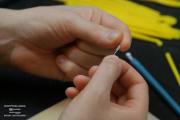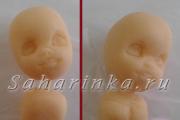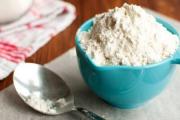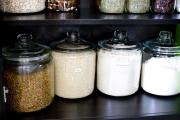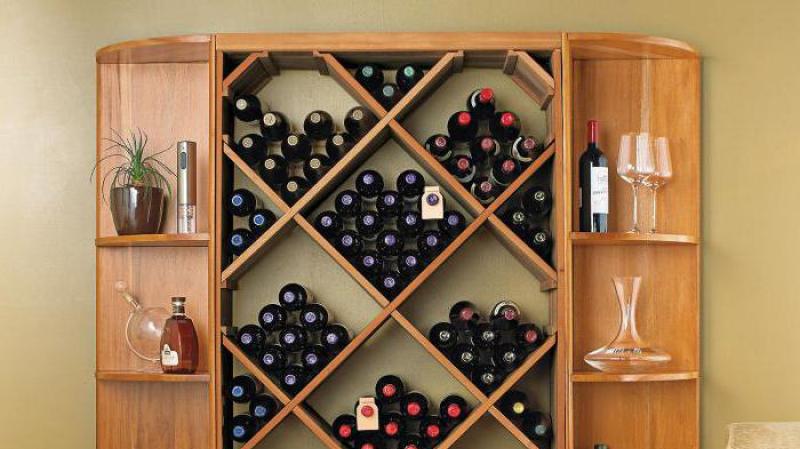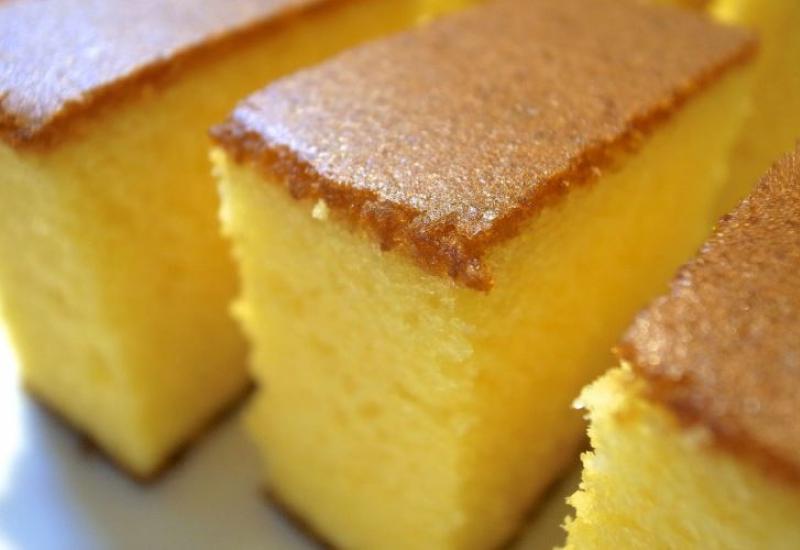Lemonade production line. Own business: production of soft drinks. Carbonated beverage business plan. Overview of some models of finished production complexes
In hot weather, in order to cool down a bit, many people prefer to drink a refreshing soft drink called lemonade. Its recipe was created around the 17th century. Initially, only lemon juice, sugar and water were used as ingredients.
Nowadays, any carbonated drink is colloquially called lemonade.
History of appearance
The production of carbonated lemonade became possible when the English chemist J. Priestley invented a special pump. The device, which was called a saturator, made it possible to mix water with gas. After that, a variety of drinks began to be produced, in which berry or fruit syrups were used. They were bottled and called lemonade.
In modern production, natural syrups have been replaced with acids and essences. At the same time, a wide assortment list of various low-, medium- and highly carbonated lemonades is produced.
Idea for business
Many entrepreneurs have recently become interested in starting a business such as the production of soft drinks. Lemonade production in Russia is gaining momentum every year. The popularity of this drink is growing more and more, which allows businessmen to receive good income.
The relevance of a refreshing drink
Lemonade isn't just an attractive product for adults. Children especially like him. In hot weather, no one will refuse to buy a glass of a refreshing sweet drink. Given the variety of tastes, the seller can always offer different options.
However, it is worth remembering that almost ninety percent of sales are carried out during the hot summer season. In winter, a refreshing drink is irrelevant and large-scale production can be costly.
Recipe
For the production of a liter of lemonade, take three hundred grams of lemon juice, placing the raw materials in a large container. After that, distilled water is added here in a volume of one and a half liters, as well as 50 grams. Sahara. According to this recipe, you can make lemonade at home. However, the price of a natural drink is quite high, which makes it almost impossible to find it on the market. Concentrates are used on an industrial scale for the production of lemonade. At the same time, artificial drinks have a long shelf life.
Technology
In the production of lemonade, the blending method is used. It is the basis for making a sweet drink. A blend is a mixture of ingredients that make up lemonade. It is obtained by cold, semi-hot or hot method.
The industrial lemonade contains water and sugar, citric acid and juices (tangerine or apple). To obtain the desired color, a natural dye is used. This is burnt sugar. Depending on the recipe, other ingredients may be included in the lemonade.
Most of all in this drink is water. That is why special attention is paid to its quality. Lemonade production technology involves filtering, softening and disinfecting water. Then it is fed into the syrup boiler using a special pump.
In this unit, water is mixed with wort, passes through special heat exchangers, filters, and then enters the blending vessel. In the next step, the mixture is sweetened with syrup. Carbon dioxide is included to give the beverage a refreshing effect. Carbonation of varying degrees takes place in saturators. At the next stage of the technological process, the practically finished product is cooled, and then it is distilled to the filling line.
Choice of containers
Equipment for the production of lemonade can be selected correctly only if, before buying it, a novice entrepreneur has decided on the container for the final product. The most versatile and economical packaging is PET bottles.
Such containers can have various shapes and volumes. It is produced in one of the premises of the plant. In this case, it will be necessary to equip the blowing shop, which will contain specialized machines. For bottling lemonade, glass containers or tin cans can also be used.
Filters
Equipment for the production of lemonade must include a water intake system. These machines are made of food grade stainless steel. A water treatment system should include a quartz and carbon filter, as well as a sodium ion filter, a UV sterilizer and an ozone generator.
Raw water taken from a well to make an environmentally friendly and high-quality drink is simply unsuitable. That is why it becomes necessary to use a filtration system. The purified water will contain neither heavy metals, nor foreign odors, nor hydrogenation products, nor microbes, nor organic substances.
Processing and melting sugar
Equipment for the production of lemonade is certainly a two-layer syrup boiler, which has good thermal insulation. Its volume must be at least five thousand liters. Such a device is also necessary for the production of various sweet drinks.
The main purpose of the boiler is to dissolve sugar, which is initially melted into a syrup using steam or electricity. After that, the prepared raw material is transferred with the help of a special pump into a reservoir with a filter. According to the recipe of the drink, edible extracts, food additives, etc. can be added to the syrup. At the last stage, the product is cooled to fifty degrees.
The syrup boiler is very durable, easy to operate, highly stable and efficient. It belongs to one of the main devices used in the production of sweet drinks.
Bottling
Equipment for the production of lemonade should include an apparatus with which the finished drink will be packaged in a container selected in advance. There are many types of filling systems. The main selection criterion in this case is the desired performance, as well as the type of container and beverage.
Filling can be carried out at elevated atmospheric pressure as well as under vacuum. Selected models of filling systems are capable of dispensing drinks, which is performed by volume, by time, by weight or by level. At the end of the filling process and after the container is capped, a label is applied.
This process requires special devices. Labeling machines (as they are called) have different capacities. Modern models of this equipment can glue from one thousand to sixty thousand bottles within an hour. In this case, labels are used either self-adhesive or made of polypropylene material.
Container packaging
For more convenient transportation of the finished drink, you will need to purchase a shrink wrap machine. Its main purpose is to form group packaging. Heat-shrinking equipment is made of crucible or chamber type. At the same time, based on the tasks set, a separate apparatus or an automatic line can be purchased. Packaging of containers with a ready-made drink in shrink-wrap provides transport group packaging with or without a special backing.
Filling and packaging systems are also available in combined types. Their functions include sealing and rinsing containers. An example of such systems is the triblock, which is designed for filling both carbonated and non-carbonated beverages.
In this case, it is possible to use containers with a capacity of five hundred ml to one and a half liters. Such machines are highly automatic and easy to operate. Triblocks have a high container feed rate, and special pneumatic devices prevent bottle deformation.
Finished product
The result of the work of the entire system is the blocks, which are strapped with a film, consisting of bottles with a drink, on which the labels are already applied. This is where the technological process for the manufacture of a sweet non-alcoholic product ends.
The price of equipment for the production of lemonade can range from one hundred thousand dollars to a million. It all depends on its performance, as well as on the type of drink and container. In addition, for the production of lemonade, it is necessary to have refrigeration units and an electronic control panel that will allow you to control the operation of all units.
Many entrepreneurs start their business with the manufacture of alcoholic beverages, but few people think about making drinks, mineral and just pure water, as well as various energy drinks, etc.
While alcohol is in high demand, alcohol-free beverages can be quite profitable as well. Let's see what units are needed to start, and what the technology is. The fact is that it is extremely important to choose the right equipment for the production of soft drinks.
Some general information
Currently, most of the products are manufactured in the territory of the Russian Federation, regardless of the brand and brand. In principle, the technologies of foreign production of soft drinks and domestic ones are not much different from each other.
If you plan to gradually expand your business, it is best to start with juice drinks, this is due to the fact that this type of product is most popular, and it will be easier for you, and an order of magnitude faster, to recoup the initial costs.
Energy also should not be overlooked. It is important to purchase raw materials that must comply with GOST and regulatory requirements. By far the most important is the preparation of water for the production of soft drinks. Of course, you can use natural water, but it must first be treated and passed through several filters.
Equipment for the production of soft drinks
As noted above, a lot depends on what kind of equipment you buy. Nevertheless, the technological lines at all factories for the production of such products are practically the same. They can differ in the quality of units, their quantity, productivity, etc.
Made in Kazakhstan. Lemonade production technology
You also need to purchase water treatment equipment, which includes coarse filters, for example sand filters, and for softening, most often it is sodium cationite. In addition, a membrane filter is installed.
You cannot do without a freezer in production, or, more simply, a refrigerator. It is here that the water will be saturated with carbon dioxide. A syrup cooker is required for the production of sugar syrup. What else is needed is several tanks, the number and volume of which must be selected depending on the performance of the units. You will need a conveyor and a filling machine.
Soft drinks production technology
The whole process takes place in several relatively simple stages. At the first, water is prepared. For this, a pair of filters is used: coarse and clean cleaning, as well as for softening. The next step is saturation with carbon dioxide in the refrigerator.
After that, the water is boiled and only then sugar is added there, which was cooked separately all this time. Everything is thoroughly mixed and cooked for about half an hour, then citric acid is added, after which the syrup is cooled and poured into tanks.
Further, various dyes are added, and the mixture enters the tinting apparatus, where it is heated to a temperature of 200 degrees Celsius, and then cooled. In principle, the production can be considered complete at this point, all that remains is the bottling of soft drinks and packaging. Again, the equipment available in the line may differ slightly, because much depends on what you are doing, for example, it will be kvass or juices, mineral water, etc.
Several important points
If you intend to make juices, then you will also have a third stage. Here you need to make a blended syrup. It consists of several flavors and flavorings. Mixing is carried out according to the recipe, so the technology of soft drinks at this stage is different everywhere.
In any case, you will need juice from berries, as well as fruits, acids and other components. The mixture is heated, cooled and fed to the blender. Next, dissolved air is removed from the liquid, and the product is packaged. As for the filling and packaging, everything is extremely simple. A dedicated conveyor and filling machine are required. Since the process is fully automated, only control and regulation of productivity is required, but this is on demand.
As you may have noticed, this is a very interesting business idea. It is also necessary to take into account the fact that large capital investments will not be required, especially if you are going to open a small factory. However, the equipment for the production of soft drinks must be of high quality and tested. 
When we talk about juices, nostalgia for the times of the USSR immediately wakes up. It was then that there was an affordable high-quality product on store shelves, poured into three-liter cans. Today, the counters are full of packages with dubious contents, made by recovering concentrated raw materials (it is good if it was of high quality, without dyes and flavors). Therefore, entering the market, you need to define your niche. What kind of juices do you want to produce - concentrated, reconstituted or natural, directly squeezed? The choice of equipment for juice production will depend on this.
Only natural product
According to statistics, 98% of all produced juices are reconstituted concentrates. Needless to say, the amount of nutrients in them is not particularly large. Therefore, the demand for directly squeezed product is great. At the same time, the choice of equipment for the production of juice does not depend on the variety of berries, vegetables and fruits that will be used. One line can produce several types of juices, as well as their "mixes", which are so popular on the market today. The use of vegetables reduces the cost of the fruit drink and therefore helps to increase turnover.
Organization of production of natural juice
The first problem that an entrepreneur will face is the purchase of basic raw materials, that is, fruits. At the same time, one cannot fail to note the absurdity of this situation. There are regions with warm climates, where apple orchards grow on every household plot, and most of the harvest rots safely. These are Kyrgyzstan, South Kazakhstan, Ukraine. Add cheap labor to that and you have the perfect place to start a business.
The choice of equipment for the production of juice will depend on the expected volume of processed raw materials. On average, the price of a line for a mini-workshop will cost 1,000,000 rubles. It consists of a loading hopper, a sink, a bone separating machine, a chopper, a hydraulic press, a filtration system and storage tanks, a pasteurizer and a filling mechanism. Glass jars and bottles are recommended as containers. The juice press is the most expensive machine in the entire line. The output of the final product and the level of profitability of production depend on it.
Received fruits, vegetables or berries are thoroughly washed and separated from the seeds. Then they pass through the grinder and enter the press. The remaining extracts are mixed with water and a special enzymatic extract, after which they are re-pressed. This is necessary to reduce waste and increase juice yield.
Cloudy juice with small pieces of pulp goes through a filtration system. It can be a multi-layer gauze or fine mesh. In addition, the juice is often mixed with a special clay that adsorbs natural dregs, lightening it.
In order for the product to be stored for a long time, it must undergo heat treatment (pasteurization). This will kill all microorganisms. As a natural preservative, it is permissible to add only sugar to natural juice, and then only if it lacks natural sweetness.
Reconstituted juice concentrates
More advanced lines make it possible to produce concentrated juice by evaporation or freezing of directly squeezed product. This is very useful when there is an excess of fresh vegetables and fruits, but it is advisable only in the immediate vicinity of fruit plantations, for example, in Brazil, Turkey, China. Juice production in Russia does not imply the production of concentrate, at least fruit juice.
Profit without the hassle
Most manufacturers follow this path, and the technology itself resembles an old ad “just add water”. But since there is a lot of competition, you need to come up with a striking logo to make your product stand out from the rest. The next step is to conclude an agreement with a large company that will supply you with concentrates for the production of juices. It is worth giving preference to well-known brands that do not use chemical additives.
If you have the brand and the raw materials to manufacture, then it's time to take care of the workshop. You will need a spacious room that meets all sanitary and hygienic requirements. The size of the premises, the planned volume of production and the choice of equipment for the production of juice are very interrelated. One follows from the other.
Since raw materials (water, sugar, concentrate), unlike fresh fruit, can be supplied in unlimited quantities, the volume of goods produced will depend on the capabilities of the line and the capacity of the premises. When developing a business plan, pay special attention to this point, calculate the purchasing capabilities of prospective customers, because modernization of production is not cheap.
Organization of the production of reconstituted juice
Despite the simplicity of its manufacture, the equipment will cost you from 2 to 6 million rubles. The automated line is capable of independently performing all types of work with a well-organized supply of the necessary consumables. An important part of it is the water treatment (filtration) system.
In addition, there must be mixing tanks, a pumping system, a homogenizer, a pasteurizer, a conveyor line, a filling and packaging machine. Juice production technology according to GOST or TU may differ. If in the first case the composition should contain high-quality concentrated juice without additives (the exception may be vitamins), then the technical specification gives more room for variations, which is what manufacturers use.
To build a serious business, you need to win the trust of a capricious and spoiled consumer. Therefore, juices should not contain genetically modified ingredients, artificial colors, flavors, flavor enhancers and preservatives. There is already more than enough of such a product on the market.
Next, you need to determine what share of production will be occupied by juices, and what will be nectars and juice drinks. It is very convenient that you need the same raw materials, but at the end you will receive a whole line of products. Their difference is in the percentage of concentrate and water.
Reconstituted juice can be completely identical to freshly squeezed juice, nectars contain up to 75% water and other additives. Juice drinks are the cheapest and least quality product. Contains no more than 10% juice, everything else is water, dyes and flavors (natural at best).
Let's summarize
Whichever direction you choose (directly squeezed juices or reconstituted juices), it will still be a profitable and interesting business. There are many living examples on the market when a small workshop, whose products are sold on their own by management, grows into a huge giant. 
Establishing a manufacturing business in the food industry can be challenging as many complex tasks have to be solved in the process. But, if you approach the matter with full responsibility, without missing a single detail, you can establish a highly profitable enterprise that will recoup all costs in the shortest possible time. But a novice entrepreneur should choose a product that is in high demand for release. And here we include the production of juices and juice drinks. And in order not to invest huge investments at first, you can buy equipment for the production of medium-sized juices by organizing a mini-workshop. Juices and nectars based on fruits and vegetables are in high demand among consumers, especially in summer, when it is hot outside. The variability of technology, raw materials and assortment will allow an entrepreneur to organize a business in this niche, taking into account his financial capabilities and skills.
Our business valuation:
Initial investments - from 3,500,000 rubles.
Market saturation is high.
The complexity of starting a business is 8/10.
The production of natural juices in Russia, due to the demand for products, is a highly competitive niche. There are many manufacturers on the market, large and small, supplying their products to store shelves. But one should hardly be afraid of high competition, because even selling fruit and vegetable juices only on the regional market, one can get a good profit. A business in the production of fruit juices is quite real even for novice entrepreneurs - the main thing is to take into account important nuances.
Registration of a future enterprise
The business plan must necessarily contain information about the organizational form in which the entrepreneur is going to register the future enterprise. There is nothing without this, because we are talking about the food industry, which requires mandatory certification of products and compliance with all norms and sanitary standards.
Not a single large store will accept fruit juices from an entrepreneur who does not have any permission from supervisory authorities for this.
Experts recommend registering a mini juice plant in the form of an LLC. And to make it easier at first to keep all reporting, it is worth choosing a simplified taxation system.
After the shop for the production of juices is registered, in parallel with the search for premises and the purchase of equipment, you need to submit a package of documents to Rospotrebnadzor, which in the future will give the entrepreneur permission to conduct production activities.
Search for a production facility
The premises where the production of juices from concentrates will be located in the future may be located even outside the city. And many entrepreneurs do this - they rent a workshop in the area of the city that is closer to the suppliers of raw materials, since in this case it is possible to significantly reduce the cost of purchasing all the necessary components.
As practice shows, 100-180 m 2 will be enough to accommodate a small capacity plant.
Industrial juice production should have not only a workshop with the equipment installed here, but also 2 warehouses - for storing raw materials and for storing manufactured products. Also, do not forget about sanitary rooms for staff and office premises.
In order to obtain permission from supervisory authorities to conduct activities, the premises must be carefully prepared for work - there must be light, water, sewerage, ventilation systems installed. And this will take away from the entrepreneur a significant part of the investment, if he does not immediately rent premises with good working conditions.
Purchase of raw materials for the production of juices
The technological process of juice production involves the use of a wide variety of raw materials - everything will depend on the assortment that is planned by the entrepreneur for release.
Each of the items is produced on the basis of a juice concentrate. And depending on its amount in the finished product, all drinks are divided into:
- natural juices (100% concentrate),
- nectars (25-75% concentrate),
- juice drinks (up to 10% concentrate).
The production of concentrated juice is the most expensive of all possible directions. But such products, due to their higher value in the market, will also bring greater profit to the entrepreneur. Therefore, it is clearly not worth forming an assortment of only cheap juice drinks. The best option is to develop a range of 8-15 flavors of juices, where most of the assortment is represented by nectars.
Juice concentrates are not produced in Russia. These raw materials are imported from Asia, Brazil and Turkey. It will be problematic for novice entrepreneurs to establish direct contacts with foreign suppliers, since it is unprofitable for them to supply products in small batches. This means that you will have to cooperate with intermediaries.
The production of reconstituted juice, in addition to concentrate, will require a number of other components:
- water,
- sugar,
- nutritional supplements.
The sale of juice can be carried out in different containers - glass, plastic, cardboard. And it is better to provide for the delivery of Tetra Pak packaging to the enterprise. The juice packaged in this way will be stored longer and better transported.
Development of juice production technology
To work out the recipe and production scheme, you can either buy a ready-made technical specification, or invite an experienced technologist for cooperation. And the second option is sometimes more profitable from a financial point of view, since the finished documentation is quite expensive. And a specialist, taking into account the available equipment and the planned assortment, will select specific ingredients and a production scheme.
Apple juice production flow chart
Despite the fact that the production scheme may vary, depending on the specific type of product, the technology for the production of juices in general can be described as follows:
- Heating the juice concentrate to a boil.
- Cooling the concentrate to room temperature.
- Adding purified water to the concentrate.
- Adding various components to the juice (vitamins, flavorings, preservatives).
- Bottling of finished products.
And the production of directly squeezed juice begins with the receipt of the initial component - the concentrate. Such a scheme is rarely used at domestic enterprises, since it is not always profitable due to the high cost of the process and the resulting product. But in the presence of such equipment, it is possible to establish within the walls of the workshop the production of not only natural juices, but also fruit purees. By selling juices and purees, an entrepreneur will be able to get more profit and enter new sales markets.
Technical equipment of the future workshop
Juice production line
Juice production line can be of different capacity, configuration and degree of automation. And in order to receive a high-quality product at the output, it is important to pay special attention to the choice of technological equipment, taking into account the planned range of products and available finances.
The production of apple juice uses the following types of machines and apparatus:
- water treatment system,
- containers for mixing components and storing the finished product,
- pasteurizer,
- homogenizer,
- automatic machine for filling juice into cardboard containers,
- washing equipment.
The line for the production of directly squeezed juices practically does not differ from other technological complexes - only a machine is added here for obtaining natural juice from whole fruits and vegetables. And such equipment costs a lot - from 500,000 rubles.
Lines of European production are famous for their quality - they can work in continuous mode for a long time without failures.
The cost of the entire technological line will be influenced primarily by its capacity. But even in the case of small or medium capacity machines (0.5-1 t / h), the price of equipment for the production of juices will be quite high - starting from 2,500,000 rubles. And there is only one way to save money here - to buy a supported line. But such transactions must be approached with great caution, since there is a great risk of buying a low-quality installation that will break down very soon.
Sales problems for finished products
It is not difficult to open a mini production of juices, it is much more difficult for an entrepreneur to look for wholesale buyers of finished products. And everything is complicated by the high level of competition. Most likely, a novice businessman will have to offer his products to private stores, stalls and wholesale grocery warehouses. But at first, you don't even have to think about large supermarket chains - they prefer to cooperate with those manufacturers that have proven themselves in the market. In addition, a small production of tomato juice may not “pull” the price that federal chains are asking for space on the shelves of their stores.
To overcome high competition, you need not only to make your product excellent in quality, but also to distinguish it from other similar products. And here certain funds will have to be invested in marketing:
- Promotions,
- advertising (at least in local media),
- POS materials for highlighting on the shelves of retail outlets.
We'd love to hear from you!
(we do anything from 100 to 30,000 liters),
both based on 2 and 3 containers).
|
Equipment for a CIP-washing station (GIP)(option) |
||
|
Name |
||
|
CIP washing station, made on a single frame, in accordance with the agreed layout of technological containers on the frame and the approved hydraulic piping scheme, including 2,000l two-layer containers with thermal insulation 2pcs (we also make 3 containers - one for alkali, the second for a washing solution, the third for circulating hot water ): (Vertical cylindrical thermally insulated / except for the upper part / a container with legs with a conical bottom, designed for preparing a working solution at a temperature of 90 ° C. |
2 containers 1000l 2 containers - 2000l 2 containers 3000l |
|
Lemonade production technology
The basis of the drink is a mixture of all the ingredients or a blend. Usually, the cold method is used to prepare it, but there are also hot and semi-hot ones. Since the quality of the finished product is determined by the dosage and composition of its components, and the largest percentage of the content falls on the share of water, then even if there is a private well for its filtration, disinfection and softening, enterprises use special equipment.
For the production of lemonade, sugar, citric acid, apple juice, lemon tincture and color are also used - burnt sugar, which serves as a dye. The finished drink has the aroma of lemon essential oils, a yellow color and a refreshing taste, and when poured into a glass, it emits carbon dioxide.
The refreshing effect of lemonade is due to the presence of organic acids and dissolved carbon dioxide in its composition. Artificial saturation with carbon dioxide is carried out in special production equipment - a saturator, and the degree of saturation makes the drink weak, medium or highly carbonated.

Carbonated Soft Drink Production Line
How to purchase equipment for the production of lemonade?
To order a line for RossMash lemonade, you must send a completed questionnaire to your e-mail address. After receiving the request, we will draw up a commercial proposal listing the technical characteristics, general drawings and the estimated cost of the equipment. You can clarify the necessary information by calling the contact phone number.
 |
 |
 |
 |
 |
 |
 |
 |
 |
 |
 |
 |
 |
 |
 |
 Screw conveyor for loading sugar into the boiler |
LLC "Engineering" implements complex lines for bottling lemonade, designed according to individual technical specifications of manufacturing plants. We manufacture equipment for factories on a turnkey basis, from beverage production technology to design development of a bottle, cork, label, selection of equipment for water purification, CO2 free supply, and rack equipment for a warehouse. Our clients can order a bottling line for lemonade or mineral water, we will do all the work for the client. You just have to sign the contract and make the payment
To order a conveyor:
Lemonade production workshop design
To buy a filling line, it is necessary to determine the equipment with which it will be equipped. For the selection of equipment for the lemonade machine and the calculation of equipment for the production of water and its bottling, it is necessary to agree on the initial data and fill out a questionnaire, which will be the basis of the terms of reference, as well as provide the following information:
- project or plan of an existing facility where water production is planned;
- points of supply of water, electricity, compressed air, sewerage;
- warehouse areas for the placement of consumables, finished products, administrative and office premises;
- planned productivity of the water preparation and bottling shop;
- wishes for the placement of main and auxiliary equipment.
After providing the initial data, you can select the optimal equipment. Having made the calculation, the engineers draw up a project and send it for approval to the client, where the lemonade production line will be presented in detailed information. After signing the contract and the project, the production and delivery phase begins.
Configuration of lemonade filling line
An example of a production line in the minimum configuration:
- Complex for the production of PET bottles with a capacity of 3,000 - 20,000 bottles per hour.
- Pneumatic conveyor for feeding empty bottles to the bottling triblock.
- Triblock filling: rinsing - filling - capping.
- Mixer-saturator for preparing a ready-made drink.
- Labeling machine for gluing polypropylene labels.
- Shrink wrapping machine.
- Conveyors for moving bottles in the filling line.
- Control cabinet for the lemonade bottling line.
- Pallet wrapper.
- Date printer.
This package may include a saturator and a packer from stock or made to order. If it is necessary to automate the production process, the line is equipped with conveyors and storage tables with the organization of production without the participation of an operator.
The complete set of the workshop can be expanded with a boiler for preparing syrup and a bottle rinser. Additional equipment may include:
- vertical conveyor for lifting to the upper floors;
- date for stamping the date of manufacture;
- labeler for labeling;
- a set of equipment for water treatment and filtration;
- conveyors;
- accumulating tables;
- palletizer.
The basic configuration of the lemonade bottling line can include:
- blending compartment for preparing an assortment of drinks;
- a system for the preparation of sanitary solutions;
- compressor equipment;
- equipment for non-ballooning supply of carbon dioxide enrichment of lemonade;
- water treatment system;
- refrigerator for cooling the drink before bottling;
- vertical conveyor for lifting or lowering products to different floors.
The cost of a lemonade and mineral water production plant directly depends on the configuration, productivity and degree of automation of the process for mini-production of lemonade or other variations. The less operator intervention is required in the production process, the more expensive is the automation of production.
Many businessmen today are turning their eyes to the niche for the production of non-alcoholic carbonated drinks. It would seem what a simple product, but see for yourself - how high demand it is on hot days. This also attracts those who want to make money in the field of production. It will not be easy for a novice businessman to organize the production of carbonated soft drinks, because this is a food enterprise that requires a special approach. How large a business is to launch will depend on the investment available. But in any case, drawing up a detailed business plan is a priority task.
Our business valuation:
Initial investment - from 1,000,000 rubles.
Market saturation is high.
The complexity of starting a business is 6/10.
The Relevance of the Lemonade Making Business
Having planned to launch the production of carbonated water and lemonade, you need to understand that more than 80% of the total volume of manufactured products is sold in the summer months - from April to September. It is during this period that soft drinks are relevant among consumers. Therefore, it will be difficult for newly opened enterprises in the first year - in winter, most likely, they will have to work at a loss.
No “disruptions” in production are foreseen if reliable distribution channels are found in time (even before the plant is launched).
Decent indicators in Russia are considered to be the productivity of the enterprise up to 150 thousand liters of finished product per day. And this, by the way, is absolutely minuscule when compared with such industry giants as Coca-Cola and PepsiCo. Of course, it makes no sense to compete with global companies. For a start, it is better to open a small lemonade production workshop, the products of which can be sold to retail outlets in a specific region.
In order to immediately enter large sales markets (retail chains throughout the country), it is necessary to enlist the support of investors, since the costs here will amount to tens of millions.
And many of them do it even easier. Given the fact that carbonated soft drinks are in demand only in summer, businessmen open street stalls / pavilions in shopping centers / kiosks in parks for the summer season and sell lemonade on tap. The costs are minimal here, but the return can be (with a well-chosen place of sale) very tangible.
Where to start a lemonade business?

Having decided on the scale of production, you can start looking for a place where it, in fact, will be located.
Everything is greatly simplified if a businessman decides to “produce” lemonade right on the spot. All that is required in this case is to find a passable place and purchase equipment for bottling lemonade. There are a lot of options here - parks, areas near shopping centers and cinemas, cafes. When renting a place for a tent in a cafe or shopping center, you will have to give a part of the profit to the owner. But as practice shows, incomes more than cover all rental costs.
Well, if a decision is made to launch your own mini lemonade production plant, you cannot do without running around the authorities. To help the entrepreneur - SanPin 3.2.6.1066-01 "Sanitary and epidemiological requirements for trade organizations and the turnover of food raw materials and food products in them."
What you need to do:
- issue a sanitary book,
- issue an individual entrepreneur or LLC,
- obtain permission from Rospotrebnadzar,
- register with the tax office.
And this is just the beginning. There are a lot of things ahead - renting premises, hiring personnel, purchasing equipment, launching a line.
Technology for the production of non-alcoholic carbonated products
The technology for the production of lemonade and soda water is not difficult - even a person who is far from the food industry will master it. The blending method is used to make drinks. The enterprises have introduced cold, semi-hot or hot blending.
In general, the process flow diagram can be described as follows:
- Water preparation.
- Water supply to the syrup boiler.
- Mixing water with wort.
- Supply of the mixture to the blending vessel.
- Sweetening the mixture with syrup.
- Carbonation and cooling of the drink.
- Supply to the lemonade filling machine.
The quality of the resulting product is influenced by the ingredients used. Particular attention is paid to water. The main difficulty in launching a large enterprise lies precisely in ensuring constant access to water of a suitable composition.
On the territory of large factories there are their own artesian wells. This, by the way, is also an excellent marketing ploy - to inform consumers later that the water is obtained from a natural source.
The most suitable option for starting a small workshop is the preliminary treatment of tap water. In this case, the lemonade production line should include devices for purifying and enriching the water supplied for processing with microelements.
The recipe for the finished product can be anything - food additives and colors allow modern enterprises to produce drinks of a wide variety of tastes and aromas. To choose the right recipes, you need to decide on the range of products.
Large enterprises do this. During periods of high demand, they rely on the most popular types of lemonades, producing only them. But in winter, the plant produces the entire product line - only in much smaller quantities.
Having worked on the assortment, you need to immediately look for reliable suppliers of raw materials. Syrup, sugar, colorings and other additives are best purchased from a single source, as this will reduce the overall cost of component delivery.
Purchase of the necessary equipment

Mini workshop for the production and bottling of lemonade
Shop equipment is the most impressive item of expenditure. But if you open a small kiosk that sells a drink for bottling, then big expenses are not expected, since the apparatus for making and bottling lemonade, kegs and refrigerators are relatively inexpensive. To launch a street drink trade, you will need a maximum of 300,000 rubles.
But to buy equipment for the production of lemonade with a capacity of 5000 l / h, you will have to invest much more money.
The standard line includes the following devices:
- Water treatment system.
- Cauldron for making syrup.
- Containers for storage and mixing of components.
- Saturator.
- Filling and packaging system.
The price of equipment for the production of lemonade will depend on many factors - the productivity of the line, the degree of its automation and completeness. The minimum cost of the entire line will be at least 1,000,000 rubles. And most of the amount will go to water treatment devices. Used equipment will cost slightly less.
Payback on lemonade business
How quickly a launched business will pay off will depend on the sales market and the funds invested in advertising. Do not forget that the market is full of offers and it will be difficult to break through.
According to experts, the profitability of the lemonade business is 15-20%.
Do not expect that the invested funds will return next year - this is possible only in the case of seasonal trade in bottled drinks. The mini-plant will reach the break-even point only after 2-5 years.
Lemonade is a drink whose taste is well known to all of us from childhood. The refreshing taste of the drink of attractive yellow color with the scent of lemon oils especially saves in the summer and perfectly complements the menu on holidays. The recipe for the drink is simple and does not require a lot of investment. Typically, the production of carbonated soft drinks includes the production of lemonade as an additional source of income. Also, when developing an effective business plan, you can open a lemonade business as an independent business from scratch.
In the business plan, it is necessary to lay down such cost sections as renting premises for production and a warehouse, a transport site, buying equipment for the production of lemonade and its bottling, regular delivery of raw materials and containers, or PET preforms for self-blowing PET bottles, plan the costs of implementing marketing strategies for going to market, studying the competitive landscape and advertising campaign, training and salaries of personnel, operating costs and possible repairs of equipment. It is also necessary to develop a strategy for selling the drink: wholesale supplies to supermarkets or the purchase of vents.
For mini-production, you need a room of about 170 sq. M.
It is divided into the following blocks:
- Workshop for the production and bottling of lemonade;
- Warehouse rooms for raw materials, containers and finished products;
- An office for the administration and a room for the staff;
- Household block.
In front of the premises there should be a parking lot for transport, unloading and loading of packages with raw materials and goods. A fully automated lemonade production line requires electricity and water supply to run smoothly.
Equipment for a mini lemonade plant
To implement a business, you need to buy equipment for the production of lemonade, which includes:
- One double-layer boiler with thermal insulation, in which the syrup is brewed, with a volume of about 5 cubic meters;
- One plate filter for syrup with a high pressure pump with set plates;
- One refrigeration unit with a circulation pump;
- One cold accumulator for 1.7 thousand liters;
- Three blended two-layer containers without thermal insulation for 6.3 t. L. with control panel for cooling and mixing device;
- Two single-layer tanks of 500 liters. with stirrer for ingredients;
- Two double-layer tanks with thermal insulation for storing blend or water for 6.3 tl;
- Two refrigeration units for 6000 liters per hour;
- One common control panel for pumps, temperature in blending tanks, cooling.
The premises for the workshop for the production of lemonade are selected 170 sq. m. in the manufacture of 8 thousand liters. drink per day. The companies supplying the equipment install it, pipe it and connect to a common control panel. Equipment suppliers carry out on-site installation and commissioning.  In the business plan, the price of equipment for the production of lemonade with the above production volumes is indicated within 1,000,000 rubles, if the workshop is created from scratch.
In the business plan, the price of equipment for the production of lemonade with the above production volumes is indicated within 1,000,000 rubles, if the workshop is created from scratch.
At the stage of starting a business, it is also necessary to provide a warehouse for storing containers.
If the lemonade business is gaining momentum, conquering the market and the company's marketing strategy is working effectively, then the mini-plant for the production of lemonade can be equipped with a blowing unit that will prepare containers for the drink. So the business owner will not be dependent on the supply of glass containers or PET bottles. It is better to buy PET preforms, as they take up less space, which leads to a decrease in transport costs and the area of the rented warehouse.
It will also be possible to purchase a device for applying labels to containers. Design and production of labels to order in an advertising agency. It is profitable to buy equipment for organizing a lemonade production business in Russia to provide your business with long-term warranty service and partner support.
Technological scheme for the production of lemonade

On a production scale, lemonade is prepared by the blending method, in which the ingredients required by the recipe are mixed:
- Water, which contains 80% of lemonade;
- Sugar;
- Juice (apple or tangerine);
- Kohler (burnt sugar as a natural color).
The raw materials for lemonade are 90% artificial. According to GOST 28188-89, the lemonade recipe is represented by flavors, sweeteners, dyes, sodium benzonate, citric acid, carbon dioxide, drinking water. This composition allows you to achieve everyone's favorite lemonade taste and increase the shelf life.
Lemonade production technology consists of the following stages:
- Water is prepared: filtered, softened and disinfected.
- Water is supplied to the syrup boiler using a pump.
- Mix water with wort.
- The resulting mixture is passed through filters and, with the help of a pump, is fed into a container for blending and sweetened with syrup.
- The drink is served in a saturator or an apparatus for making lemonade, where it is carbonated with carbon dioxide. Depending on the saturation with gas, low-, medium-, strongly carbonated drinks are obtained. Allows carbonating up to 70 liters per hour.
- Cooled in refrigeration units.
- A carbonated drink is served on a bottling machine for lemonade.
- Labels are applied to bottles with a drink.
- The goods are packaged in batches.
 The composition of the water affects the taste of the drink, therefore the main difficulty in starting a business is the ability to provide production with drinking water. If a small workshop for the production of lemonade is opened, then tap water is purified and enriched with microelements useful for humans. Large production is organized near wells with artesian water.
The composition of the water affects the taste of the drink, therefore the main difficulty in starting a business is the ability to provide production with drinking water. If a small workshop for the production of lemonade is opened, then tap water is purified and enriched with microelements useful for humans. Large production is organized near wells with artesian water.
This flow chart describes the production of carbonated water and lemonade. The variety of goods depends on the flavorings. When developing an assortment, it is necessary to study the preferences of buyers in the region of starting a business. A more daring marketing ploy is to offer a new taste of the drink. This will require significant expenses for the promotion of a lemonade taste unknown on the market. These steps are best taken after the business starts to generate stable income.
Features of the implementation of lemonade: options for solving the problem
For a successful business, you need to think about ways to market your products.
The first option: delivery of pre-packaged lemonade to wholesale stores, supermarkets or pavilions. There is a lot of competition for soda at the point of sale. Therefore, it is necessary to think over other mechanisms for the sale of goods.
In the second option, the company independently sells lemonade for bottling in places of demand: on the beach, near cafes or playgrounds. For this, equipment is purchased for bottling lemonade into large kegs or barrels with a tap. Also, plastic cups are purchased in the required quantity for consumption of the drink by those who wish at the point of sale, or plastic bottles for those who plan to take it with them. Consideration should be given to a method for disposing of used cups.
It is possible to sell lemonade using vending machines. They contain a device for receiving money and make lemonade pouring into cups. It should be noted that one machine costs about 100,000 rubles.
When developing a strategy for combined sales of products, depending on the seasonal conditions of sales, you can reach the optimal return on your business.
Organization of business for the production and sale of lemonade
To open a business, you need to register a company with the tax office. It is imperative to obtain certificates for the production of soft drinks, for each type of product separately. If you have not had to deal with certification before, contact the regional department of Rospotrebnadzor for advice. It is necessary for the production of soft drinks to issue a sanitary and epidemiological permit for the production of drinks. These documents will be required for the implementation of the sale of drinks through outlets and submission to regulatory authorities.
A preliminary calculation of the payback of a lemonade business
The costs are presented in rubles at the planned production capacity of the enterprise of 240,000 liters per month.
